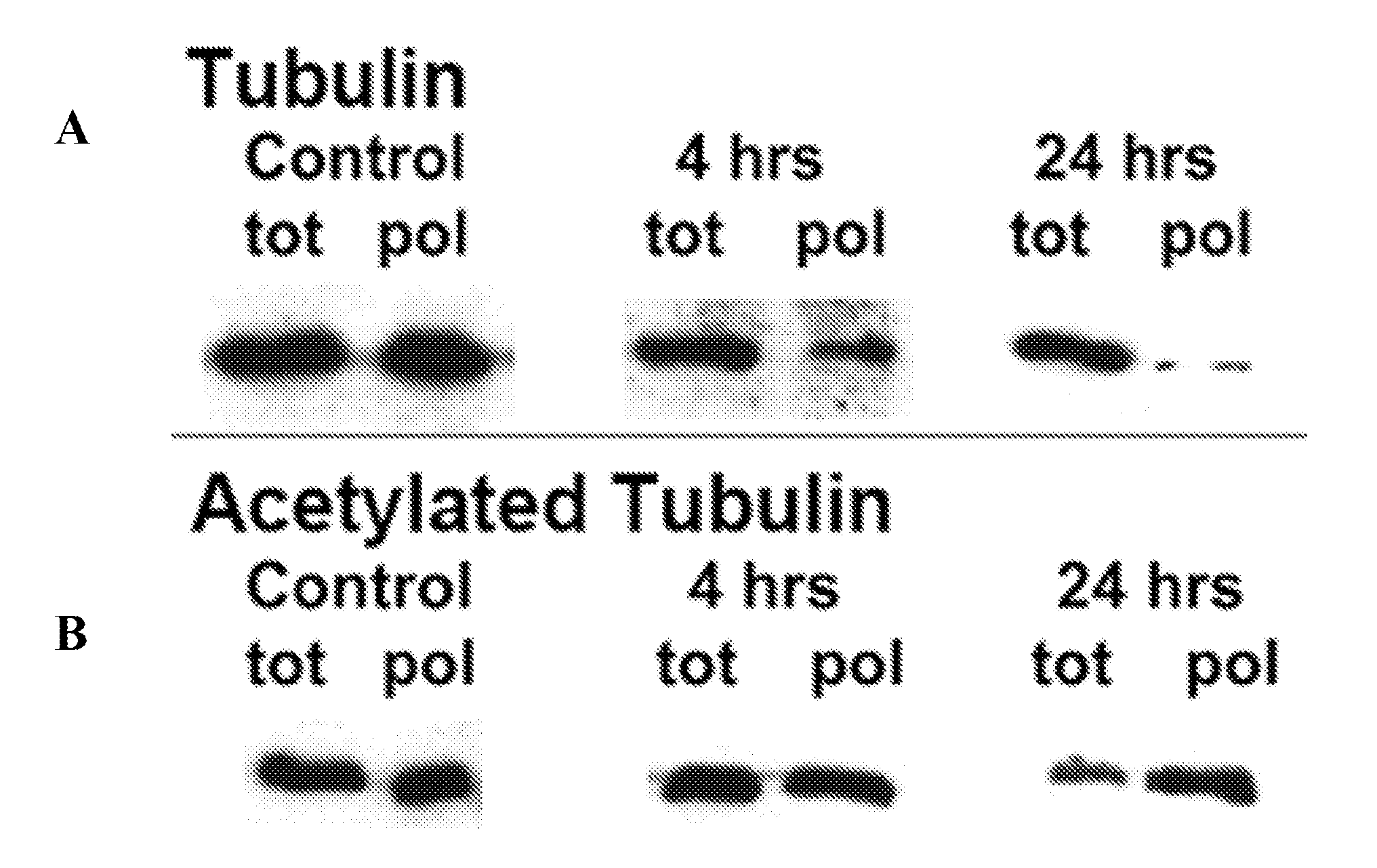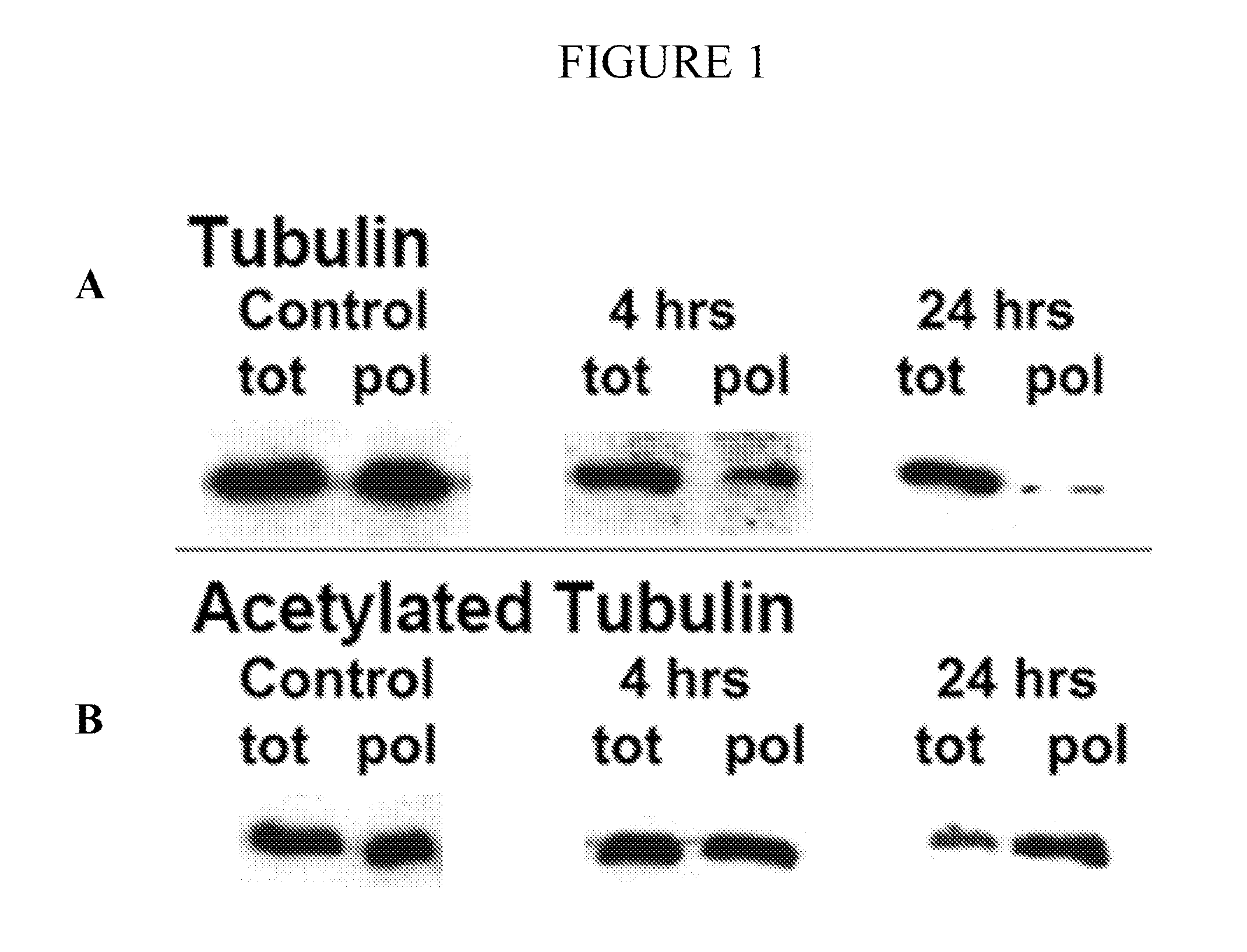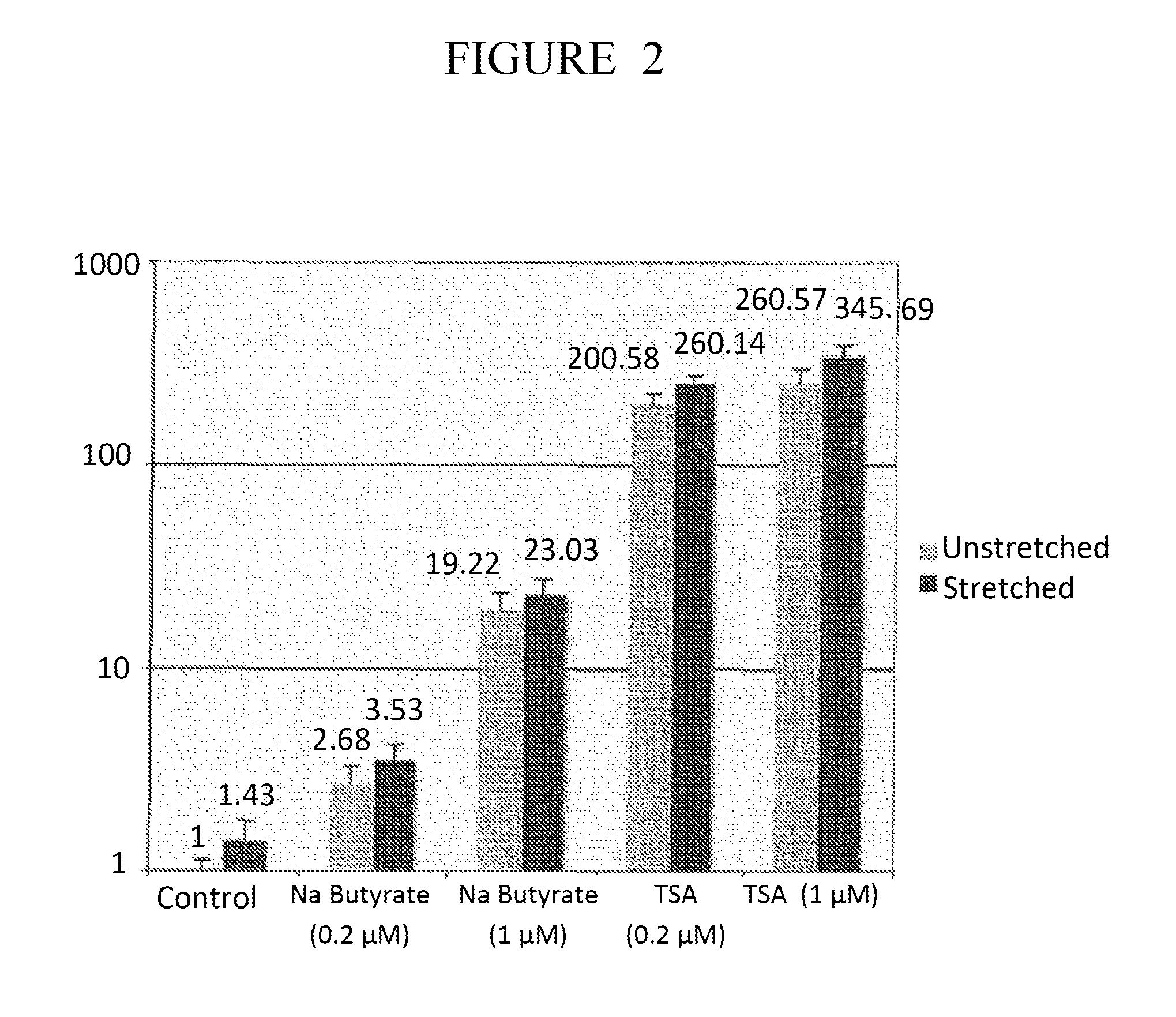Methods for nucleic acid transfer into cells
a nucleic acid and cell technology, applied in the direction of non-active genetic ingredients, drug compositions, genetic material ingredients, etc., can solve the problems that no one has specifically targeted or identified hdac6, and achieve the effect of increasing fluid clearance in the lungs
- Summary
- Abstract
- Description
- Claims
- Application Information
AI Technical Summary
Problems solved by technology
Method used
Image
Examples
example 1
HDAC 6 Inhibition Results in Increase Transfection
[0063]In this Example, after establishing that acetylated microtubules are increased in stretched cells, and are still present in nocodazole treated cells, drug treatments were used to inhibit the tubulin deacetylase, HDAC6, and also HDAC6 knockdown cells, to increase the acetylation of microtubules. It was found that increased acetylation of microtubules increased gene transfer by increasing the trafficking of plasmids toward the nucleus. Finally, other targets of HDAC6 were examined and it was determined that they are not responsible for the observed increase in expression. Taken together, these results indicate that modulation of HDAC6 and the microtubule network can increase the efficiency of gene transfer.
Materials and Methods
Cell Culture, Transfection, and Microinjection
[0064]Human adenocarcinoma A549 cells (ATCC, #CCL-185, Rockville, Md.) were grown in DMEM supplemented with 10% fetal bovine serum (FBS). A stable line of A549 ...
example 2
Tubulin Acetylation and HDAC6 Activity in the Lung Under Cyclic Load
[0082]This Example investigates the relationship between acetylated microtubules and cyclic stretch. This Examples demonstrates that cyclic stretch, at parameters that mimic physiological respiration, increases the amount of acetylated microtubules both in vitro as well as in vivo. This Examples demonstrates that mechanical stimulation can alter tubulin post-translational modifications both in vitro as well as in vivo.
Materials and Methods
[0083]Cell Culture. All experiments, except where noted, were conducted on A549 cells, (ATCC, Manassas, Va.) a human lung adenocarcinoma cell line. Stably transfected A549 cells expressing siRNA against HDAC6 were a generous gift from T. P. Yao (Duke University) (27A) and were developed using a retrovirus system expressing an RNAi for HDAC6 causing a significant decrease in HDAC6 levels (33A). Cells were grown in high glucose DMEM supplemented with 10% fetal bovine serum, kanamyaci...
PUM
| Property | Measurement | Unit |
|---|---|---|
| real time PCR | aaaaa | aaaaa |
| real time PCR | aaaaa | aaaaa |
| width | aaaaa | aaaaa |
Abstract
Description
Claims
Application Information
 Login to View More
Login to View More - R&D
- Intellectual Property
- Life Sciences
- Materials
- Tech Scout
- Unparalleled Data Quality
- Higher Quality Content
- 60% Fewer Hallucinations
Browse by: Latest US Patents, China's latest patents, Technical Efficacy Thesaurus, Application Domain, Technology Topic, Popular Technical Reports.
© 2025 PatSnap. All rights reserved.Legal|Privacy policy|Modern Slavery Act Transparency Statement|Sitemap|About US| Contact US: help@patsnap.com



